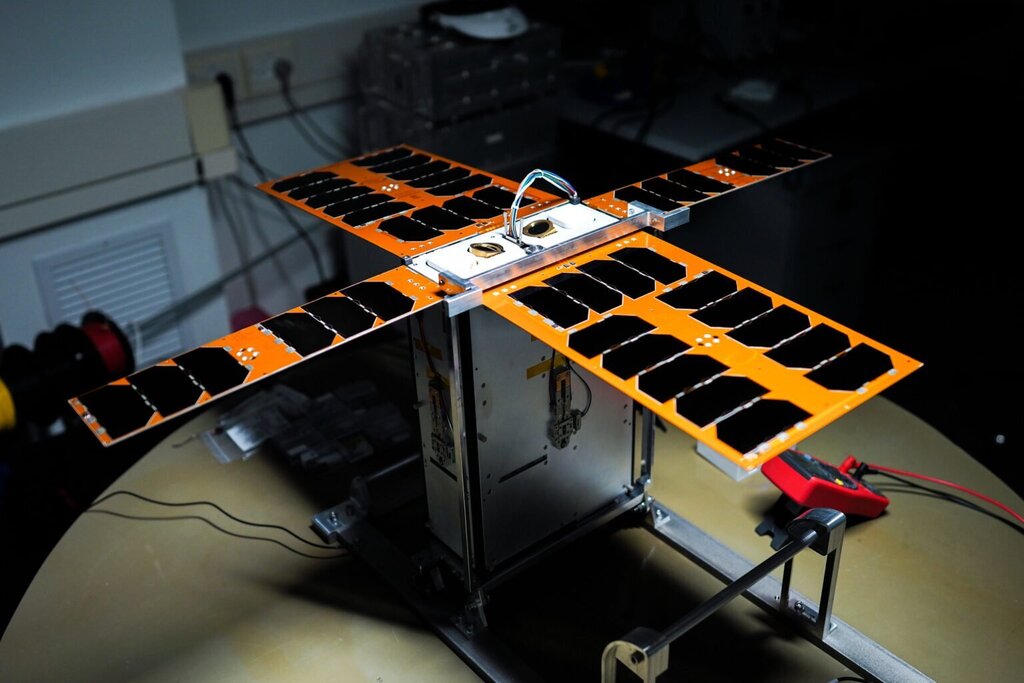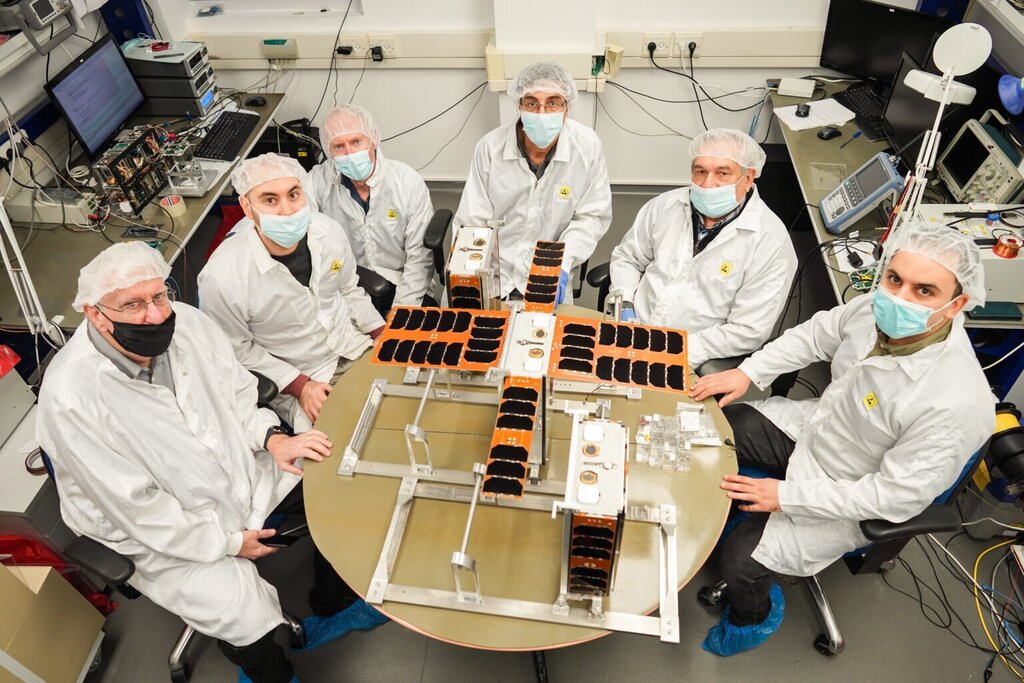Getting your Trinity Audio player ready...
Three nanosatellites developed by Israeli scientists at the Technion - Israel Institute of Technology in Haifa were launched into orbit on Monday on the Soyuz 2 from the Baikonur Cosmodrome in Kazakhstan.
The Adelis-SAMSON (Space Autonomous Mission for Swarming and Geolocation with Nanosatellites) project was launched into space after years of planning, development, construction, and improvements.
The three nanosatellites will perform autonomous formation flights.
2 View gallery


The nanosatellites developed for the Adelis-SAMSON mission
(Photo: Technion - Israel Institute of Technology)
SAMSON is an experimental mission that consists of three nanosatellites with a two-pronged mission: to demonstrate long-term autonomous cluster flight of multiple satellites without human intervention, and to receive signals from Earth and detect their precise location for search and rescue, remote sensing, and environmental monitoring missions.
The project was carried out by a team at the Technion, led by Professor Pini Gurfil of the Asher Space Research Institute
Satellite tracking and data collection is taking place at the Technion’s mission control center, which was inaugurated in 2018.
Built with the support of the Adelis Foundation, the center contains an array of Israeli-made antennae manufactured by “Orbit,” which will maintain continuous communication with the satellites.
2 View gallery


Engineers and researchers from the Asher Space Research Institute at Technion - Israel Institute of Technology with the nanosatellites
(Photo: Technion - Israel Institute of Technology)
Being the first project of its kind, the Adelis-SAMSON is considered a “technological leap” that is underway after years of interdisciplinary research and collaboration, including new and original developments.
For the three satellites to travel in formation and fulfill their missions, each installed with sensors, antennae, computer systems, control systems, navigation devices, a unique and innovative propulsion system, and a mission receiver developed by Israel Aircraft Industries (IAI).
The three satellites were launched along with dozens of satellites from 18 countries, including Japan, Saudi Arabia, and Tunisia.
The Adelis-SAMSON satellites entered orbit four hours and 20 minutes after the launch. They were activated 30 minutes later, and their systems started operating.
The first communication with the control center at the Technion is expected on Saturday afternoon.

